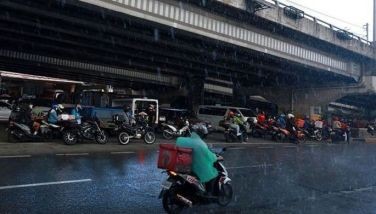Nov. 30 holiday moved to Dec. 1
November 14, 2006 | 12:00am
President Arroyo has declared Dec. 1 a non-working holiday nationwide instead of Nov. 30, Bonifacio Day, to give the public a chance to enjoy a long weekend.
Dec. 26 will also be a special non-working day throughout the country in celebration of Christmas Day on Dec. 25, which is a regular holiday. In some western countries Dec. 26 is a holiday known as Boxing Day.
According to law, Bonifacio Day is observed as a regular holiday on Nov. 30 of each year. This year, however, it falls on a Thursday.
Under Proclamation No. 1169, Mrs. Arroyo said all activities and celebrations for Bonifacio Day should still be observed on Nov. 30 even if the non-working holiday is on Dec. 1.
Filipino hero Andres Bonifacio was born on Nov. 30, 1863, and Nov. 30 is known as Bonifacio Day to celebrate his birth.
Bonifacio is known as the Supremo and father of the Kataastaasan at Kagalanggalang na Katipunan ng mga Anak ng Bayan or Katipunan, the revolutionary movement that fought fiercely for Philippine independence from Spanish rule in what was to become the first revolution in Asia against European colonial rule.
Meanwhile, "in consideration of the Filipino tradition of visiting relatives and spending time with one’s family on Dec. 25, which falls on a Monday this year, and to give an opportunity for travel to those who have to return home or to their workplaces after their Christmas visits," Dec. 26 should be a non-working day, Mrs. Arroyo said.
Mrs. Arroyo signed the proclamation on Nov. 10.
It has become government’s policy to move the non-working days in celebration of various occasions for longer weekends — a practice popularly called "holiday economics."
Mrs. Arroyo said this practice is meant to enhance family ties and promote domestic tourism. — Aurea Calica
Dec. 26 will also be a special non-working day throughout the country in celebration of Christmas Day on Dec. 25, which is a regular holiday. In some western countries Dec. 26 is a holiday known as Boxing Day.
According to law, Bonifacio Day is observed as a regular holiday on Nov. 30 of each year. This year, however, it falls on a Thursday.
Under Proclamation No. 1169, Mrs. Arroyo said all activities and celebrations for Bonifacio Day should still be observed on Nov. 30 even if the non-working holiday is on Dec. 1.
Filipino hero Andres Bonifacio was born on Nov. 30, 1863, and Nov. 30 is known as Bonifacio Day to celebrate his birth.
Bonifacio is known as the Supremo and father of the Kataastaasan at Kagalanggalang na Katipunan ng mga Anak ng Bayan or Katipunan, the revolutionary movement that fought fiercely for Philippine independence from Spanish rule in what was to become the first revolution in Asia against European colonial rule.
Meanwhile, "in consideration of the Filipino tradition of visiting relatives and spending time with one’s family on Dec. 25, which falls on a Monday this year, and to give an opportunity for travel to those who have to return home or to their workplaces after their Christmas visits," Dec. 26 should be a non-working day, Mrs. Arroyo said.
Mrs. Arroyo signed the proclamation on Nov. 10.
It has become government’s policy to move the non-working days in celebration of various occasions for longer weekends — a practice popularly called "holiday economics."
Mrs. Arroyo said this practice is meant to enhance family ties and promote domestic tourism. — Aurea Calica
BrandSpace Articles
<
>
- Latest
- Trending
Trending
Latest
Trending
Latest
Recommended































